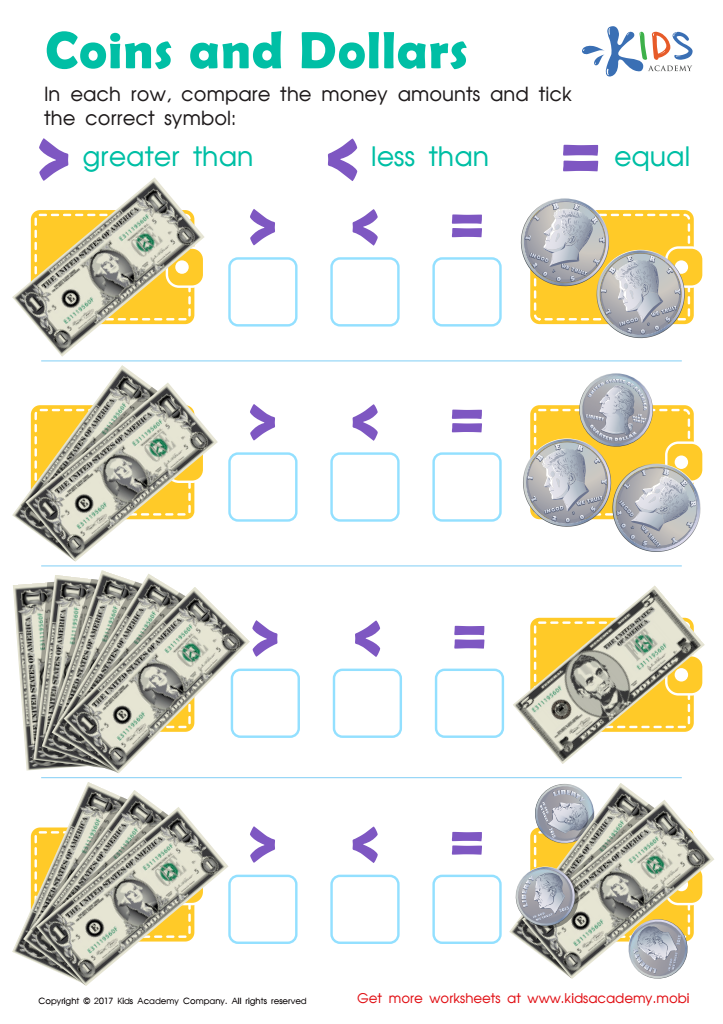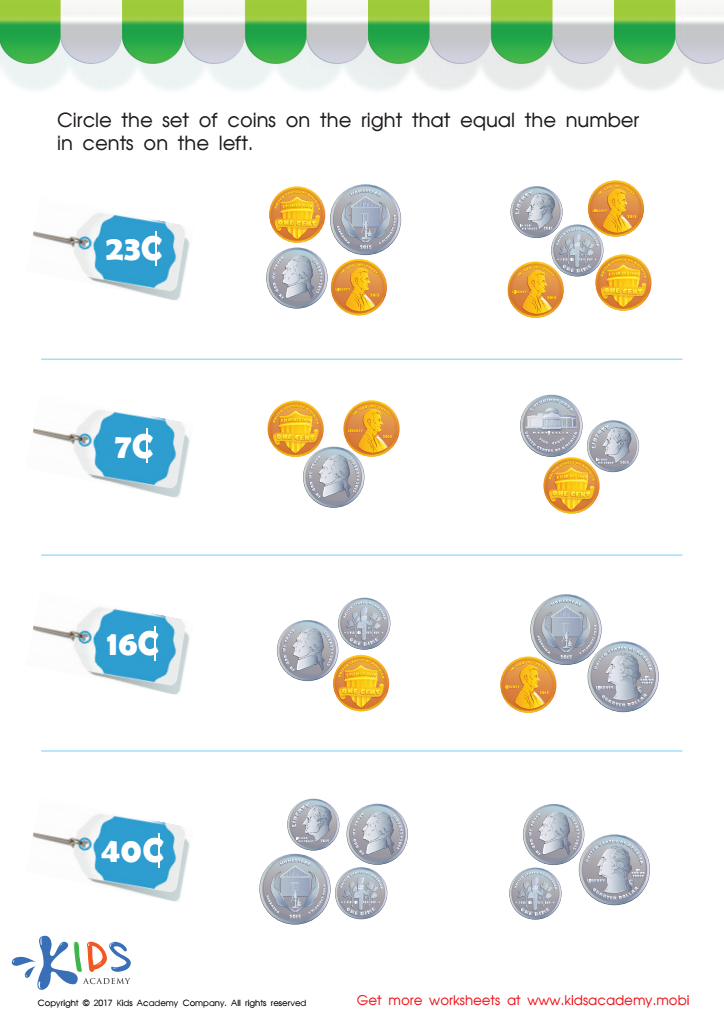Money identification Math Worksheets for Ages 5-9
4 filtered results
-
From - To
Our Money Identification Math Worksheets for ages 5-9 make mastering currency simple and fun! Through engaging activities, young learners will identify, count, and manage coins and bills, enhancing their math skills and financial awareness. Carefully designed to cater to different learning stages, these worksheets are ideal for fostering practical life skills such as understanding value and making change. With colorful visuals and hands-on exercises, children will gain confidence in recognizing money, ensuring a solid foundation in math while enjoying the learning process. Perfect for classroom or home use, our worksheets help turn everyday math into an exciting educational adventure!


Money: Coins Dollars Printable


Picking the Coins You Need Money Worksheet
Money identification math is an essential skill that benefits young children aged 5-9 in several crucial ways, which is why parents and teachers should prioritize it. Understanding and recognizing money sets the foundation for financial literacy, teaching children the value of different denominations and how to use them in everyday transactions. This early exposure fosters responsible money habits, helping children develop a sense of the worth and management of money from a young age.
From a mathematical perspective, money identification strengthens basic math skills such as counting, addition, and subtraction. Handling coins and bills allows children to practice these operations in a tangible, real-world context, enhancing their number sense and problem-solving abilities. Moreover, recognizing and counting money involve various cognitive skills, including memory, comparison, and sequential thinking, which are pertinent for overall academic success.
Furthermore, lessons on money can be highly engaging and relevant, making mathematics more interesting and accessible. Incorporating games and real-life simulations can enable experiential learning, enriching the educational experience and fostering a more profound understanding.
Ultimately, teaching money identification math to young children equips them with fundamental life skills that contribute to personal independence and confidence in both academic and everyday tasks. This foundational knowledge supports their future financial decisions, ensuring they grow into capable, financially literate adults.



 Assign to My Students
Assign to My Students







.jpg)













